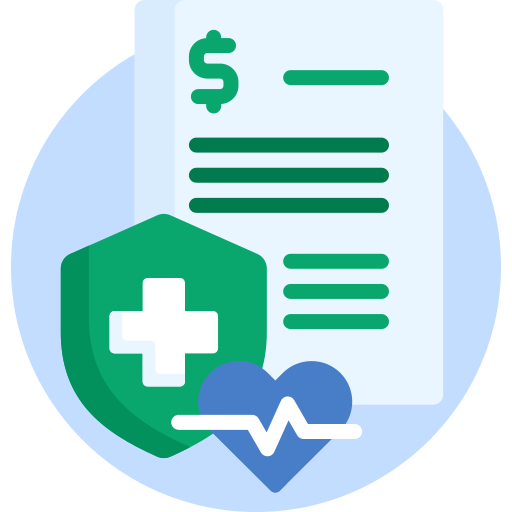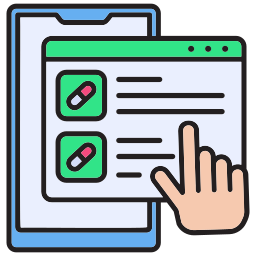Cerner EMR is a significant provider of health information technology solutions, particularly its complete EMR systems. Cerner EMR holds around 24.4% of the U.S. hospital EMR market. Cerner's solutions make it easier to organize, store, and share patient data across several healthcare settings.
Cerner integration contributes significantly to better data management by providing integrated solutions that address clinical, financial, and operational healthcare aspects.
Cerner EMR’s technologies are intended to improve clinical processes, assist decision-making, and improve patient care by making accurate and up-to-date information readily available to healthcare personnel.
Data interoperability is critical in today's healthcare setting because it allows patient information to be transferred effortlessly across several healthcare systems and providers. This capacity is critical for providing coordinated and efficient treatment, lowering medical mistakes, and enhancing patient outcomes.
Cerner interoperability enables the integration of disparate data sources, providing complete patient insights and supporting sophisticated healthcare analytics.
Cerner EMR also helps comply with regulatory standards and improve healthcare delivery efficiency by reducing redundancies and ensuring all stakeholders have correct and timely patient information.
Let’s learn more about Cerner EMR and its competition:
Cerner EMR and the Competition
Cerner EMR is a prominent player in the EMR market, renowned for its comprehensive healthcare solutions that facilitate patient information management across various healthcare settings.
Cerner systems are widely adopted by hospitals, clinics, and other healthcare institutions, improving clinical and operational outcomes. Its commitment to innovation and user-friendly interfaces has enabled it to maintain a competitive edge in a rapidly evolving market.

Cerner EMR, a major player in the EMR market, faces competition from several other leading companies in the healthcare IT industry.
Key competitors include:
1️⃣ Epic Systems
Epic EHR is one of the largest EHR vendors, widely recognized for its comprehensive suite of healthcare solutions. It serves many of the top hospitals and health systems in the United States. Epic's focus on interoperability and user-friendly interfaces makes it a strong competitor.
2️⃣ Allscripts Healthcare Solutions
Allscripts provides a range of healthcare IT solutions, including EMR, practice management, and revenue cycle management. Known for its open architecture and emphasis on interoperability, Allscripts competes with Cerner EMR by offering flexible and customizable solutions.
3️⃣ Meditech
Meditech EHR is a well-established EHR provider with a significant market presence, particularly among community hospitals and small to mid-sized healthcare facilities. Its integrated solutions for clinical, administrative, and financial operations position it as a key competitor.
4️⃣ Athenahealth
Athenahealth EHR offers cloud-based EMR, practice management, and billing services. Its focus on reducing administrative burdens and improving financial performance through innovative technology solutions puts it in direct competition with Cerner EMR.
5️⃣ McKesson Corporation
McKesson, through its various healthcare IT subsidiaries, offers a broad range of EHR and health information technology solutions. McKesson’s strong distribution network and comprehensive product offerings make it a notable competitor.
6️⃣ NextGen Healthcare
NextGen Health provides EMR and practice management systems primarily for ambulatory care settings. Its solutions aim to improve clinical outcomes and operational efficiency, making it a competitor for Cerner EMR in outpatient care facilities.
FHIR Capabilities
Problems that HealthConnect CoPilot can fix:
HealthConnect CoPilot addresses several critical challenges in healthcare data management:
- Data Fragmentation: Health systems often use multiple EMR systems, like Cerner EMR, that don't communicate effectively with each other. HealthConnect CoPIlot integrates these disparate systems, ensuring that patient data flows seamlessly across different healthcare settings. This unified approach eliminates data silos and improves data accessibility.
- Interoperability Issues: Different EMR systems, like Epic and Cerner EMR, may use incompatible data formats and communication protocols, leading to interoperability issues. HealthConnect CoPilot utilizes standard APIs and healthcare standards like FHIR to facilitate smooth data exchange between systems, overcoming these compatibility barriers.
- Patient Care Coordination: Inefficient data sharing among healthcare providers can hamper care coordination. HealthConnect CoPilot enables comprehensive patient information sharing, providing clinicians with an overview of patient history, medications, and treatments. It enhances care coordination, reduces medical errors, and improves patient safety.
- Operational Inefficiencies: Manual data entry and retrieval processes can be time-consuming and error-prone. HealthConnect CoPilot automates data integration tasks, streamlining workflows, and reducing administrative burdens. This efficiency frees up healthcare professionals and stakeholders to focus more on patient care than data management.
- Regulatory Compliance: Healthcare organizations must comply with stringent data privacy and security regulations (e.g., HIPAA in the United States). HealthConnect CoPilot ensures data security and regulatory compliance through robust encryption, access controls, and audit trails, protecting patient information against unauthorized access and breaches.
By addressing these challenges, HealthConnect CoPilot improves healthcare delivery by fostering data-driven decision-making, enhancing patient outcomes, and supporting healthcare providers in delivering more efficient and effective care.
Connecting to HealthConnect CoPilot
HealthConnect CoPilot addresses the pressing issue of data fragmentation in healthcare by integrating disparate EHR systems, ensuring seamless patient data flow across diverse healthcare settings. As the EHR market is projected to grow to USD 41.87 billion by 2033, HealthConnect CoPilot's role in facilitating efficient and accurate data exchange becomes crucial.
By unifying data from various sources, HealthConnect CoPilot helps healthcare providers gain comprehensive patient insights, enhance clinical decision-making, and improve patient outcomes.
The core of HealthConnect CoPilot integration capabilities is built upon advanced APIs and industry standards like FHIR. These technologies enable HealthConnect CoPilot to connect with different EHR systems and other healthcare applications, ensuring interoperability and data consistency.
HealthConnect CoPilot streamlines the integration process by using these standards, lowering the technological obstacles that frequently impede smooth data transmission. This strategy ensures that patient data is accurate and up to date while enhancing healthcare operations' efficiency by simplifying workflows and reducing administrative burdens.
HealthConnect CoPilot is poised to lead this transformation by continuously adapting to emerging technologies and standards, ensuring that healthcare providers can deliver the highest quality care while optimizing operational efficiencies.
How HealthConnect CoPilot Can Help You with Cerner Integration
Data interoperability is essential for modern healthcare, facilitating seamless data exchange to enhance clinical decisions and operational efficiency. We can look for better EMRs to achieve the best results.
HealthConnect CoPilot unifies patient information across disparate systems, supporting informed care delivery and better patient outcomes. Take the next step towards integrated healthcare solutions with Mindbowser.
Discover how HealthConnect CoPilot can transform your data management. Contact us now to learn more.

Pravin Uttarwar, CTO of Mindbowser
As the CTO of Mindbowser, a healthcare-focused software development company, I am dedicated to delivering cutting-edge digital solutions that transform patient care and operational efficiency. With over 16 years of experience and as an MIT alumnus, I specialize in healthcare interoperability, FHIR-compliant systems, and AI-powered platforms, crafting scalable products and architectures tailored to the unique needs of healthcare providers and enterprises.
I have spearheaded the development of over 100 products and platforms, guiding them from concept to full-fledged solutions. My expertise extends to scaling remote tech teams, driving EHR integrations, and building secure, cloud-native healthcare solutions. By shaping technology visions and roadmaps, I help clients achieve long-term growth and success in the rapidly evolving healthcare landscape.
HealthConnect CoPilot enabled us to access real-time patient health data through integration with Apple HealthKit, enhancing care delivery while maintaining HIPAA compliance. This led to personalized care and improved outcomes for patients.

AI-enhanced Obstetrics Clinical Decision Support Platform
HealthConnect CoPilot's integration with Epic's Hyperspace has transformed our workflow. Automated post-delivery examinations and HL7 protocol use ensure accurate updates to Epic. Their expertise empowers informed decision-making in childbirth

Top Provider for Customized Healthcare Solutions
HealthConnect CoPilot's helped us to integrate with leading tracking devices such as Apple Watches and Fitbit. This integration enables effortless syncing of health data, providing users with real-time insights displayed directly on our flagship products: smart mirrors and digital calendars.

A Provider of Customizable Display Solutions
Post a comment Cancel reply
Related Posts
Ambulatory EHR vs Inpatient EHR: Which One is Right for Your Practice?
EHRs help doctors and healthcare staff store, access, and manage patient information digitally. They improve…
Ambulatory EHR: A Complete Guide for Healthcare Providers
Healthcare providers are moving beyond paper records and legacy systems, and ambulatory EHRs are leading…
Epic Integration with SMART on FHIR: A Complete Guide
The challenge of integrating AI-driven tools and third-party applications with Epic’s EHR system has long…
Epic EHR Integration – Unlocking Seamless Healthcare Connectivity
The EHR integration has revolutionized healthcare by enabling secure, real-time access to patient data. Epic…
Epic FHIR Integration: Making Interoperability Seamless for Healthcare Providers
Healthcare systems generate massive amounts of patient data daily, but without Epic FHIR integration, this…
Epic EHR Explained: How It Transforms Healthcare Operations and Patient Care
Epic EHR has become a cornerstone of modern healthcare, providing hospitals and clinics with a…










